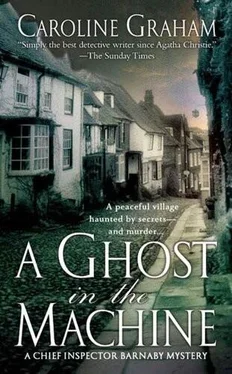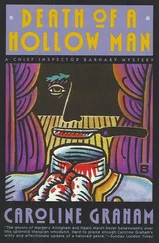This was the great set piece and conclusion of the novel. When Dennis had, after nearly a year, finally reached this scene, he wrote it at great speed, his brain spinning with excitement and emotion. When it was all over (three o’clock in the morning) he raised his head and gazed about him in bewilderment. The orderly, homely surroundings of his sitting room seemed insubstantial, part of another world. It was the jousting tournament that was real to him. The fluttering pennants and swaying silken tents under a copper sky. The clash of steel and thunder of smoking hoofs. Creaking leather, horse muck and horse sweat. Humans screaming hatred and shouting encouragement. Blood everywhere.
When he was calmer, over the next two evenings, he rewrote this final scene, pacing it more effectively while struggling to keep the blazing colour and fierce energy, the power that drove the novel inexorably to its dark conclusion.
By now Dennis’s right hand felt as if it were dropping off. Quite early on he had recognised the preciousness of his earlier affectation but had not been able to bring himself to change methods in mid-flow. Now he transferred The King’s Armourer to a computer, polishing as he went. He still remembered the thrilling sensation of authority when typing the first line, the sheer strangeness of creating a human being out of thin air.
The completed manuscript ran to nearly five hundred pages, and once it was completed Dennis was rather at a loss. He felt exhausted but in a satisfied way. And his dreams were different. Infrequent, muted, without danger. Even though he now had a novel living and breathing in his army officer’s trunk in the sitting room, its creation was still a mystery to him. How could a man possibly be a writer and live for over fifty years without knowing? Unbelievable. He wouldn’t tell anyone, of course. It would be too embarrassing. It was enough simply to have written it.
Barely a week after 13 Cordwainer Road was put on the market the house was sold. They got five thousand over their first offer and Mallory said, “I told you so.”
Kate felt only slightly guilty about this, for the man who was gazumped had been awful. A stout city porker, he had strolled around hardly bothering to conceal his contempt for the Lawsons’ shabby furnishings and well-worn carpets. Kate’s suggestion that there might be fixtures or fittings he’d like them to leave behind was greeted with a barely concealed snigger.
The people who bought the house had a young daughter and wanted to move into the area, as the Lawsons had, because of the schools. Fortunately they were not part of a buyer/seller chain and so a contract could be drawn up straight away. They were an amiable couple, chatting, asking questions about the area, talking a little about their life, recently lived in Hong Kong. They were still there when Mallory came home. He opened a bottle and they all had a drink and shook hands over the deal.
All this happened on Monday evening, the beginning of his final week at the Ewan Sedgewick. Later, while devouring Marks & Spencer battered haddock and potato croquettes and broccoli washed down with Tavel rosé, they started to plan the move.
Kate had finished editing her last manuscript the previous month. All her publishing contacts knew of the grand plan. All offered masses of encouragement, while indicating their doors would remain open should, well, things not quite work out. Consequently, unencumbered by any other pressures, Kate was free to start sorting, packing, getting removal estimates and generally clearing out stuff. She looked forward to all this tremendously, having always experienced the most intense satisfaction from throwing things away. Even a single empty jar or can hurled into the bin made her feel good. Momentarily in her life there seemed to be less muddle. She sometimes felt that if she could throw everything in the world away – except her family, a few close friends, books and music – she would finally enter a serene and balanced world full of fresh air and clear light and loving kindness. Ha!
“What d’you mean – ‘ha’?”
“Oh – dreaming of Utopia.”
“I’m dreaming of bread-and-butter pudding.”
“Won’t be long.” Kate went to the kitchen and checked the oven. She called over her shoulder: “We’ll have to get Polly over to sort her stuff out. And decide what furniture to take.”
“I think,” said Mallory, “we should offer Benny anything she wants from Appleby House.”
“Of course, we must.” Kate came in with the pudding. “It’s a sad lot of stuff in that flat.”
“But it’s her stuff. We’ll have to be very tactful. She’s quite capable of parting with things she’s really fond of, then accepting all sorts of things she doesn’t want just to please us.”
As they were musing on the impossibility of ever getting a simple, direct, uncomplicated response from Benny, the telephone rang. Mallory was nearest.
“Poll!” Mallory beamed. His eyes screwed up with pleasure as if blinking against the sun. “Hey – the house is sold.”
“We haven’t exchanged contracts yet,” called Kate.
“Take no notice of your mother.” Mallory waved his hand back and forth against Kate’s objection. “It’s in the bag.” He listened. “I am happy…How kind…Very thoughtful, darling…Don’t forget to give her our love. Ring when you get back.”
Kate heard the phone click. As Mallory sat down again she said, “What was all that about?”
“Polly thought she’d go down to Appleby House for a little while.”
“Is anything wrong?”
“No. She’s a bit worried about Benny being on her own. You know how Ben panics over the smallest thing.”
“That’s why I tried to persuade her to come back with us.”
“She’ll be more comfortable with someone there.” Then, when Kate remained silent, Mallory added defensively, “I think it’s very sweet of Poll.”
Kate did not believe a word of it. Whatever the reason for her daughter’s sudden return to Appleby House she was sure it would have naught to do with anyone’s comfort but Polly’s own.
That girl was down again. The one who walked around with almost nothing on. Someone had seen her getting out of a taxi in the drive of Carey Lawson’s house, wearing a frock no bigger than a dishcloth, held up by a thread of ribbon. Also, added the perspiring observer (Mr. Lattice from Mon Repos) as far as he could see, just from a quick glance you understand, there seemed to be no back or front to it.
Polly had not thought to telephone and tell Benny she was coming. The first Benny knew of her arrival was the clicking of anonymous heels across the hall’s worn flagstones. Then there was a thud as something was dropped and the heels continued clicking across the wooden parquet of the living room.
Benny, invisible, huddled in a tall chair by the empty fireplace. Her face was pale with fright. She couldn’t help recalling the creepy exchange with Doris just the other day. Would simply talking about ghosts be regarded as an invitation to one to materialise? Did they do it in the daytime? Surely they didn’t make a noise – what would they have to make a noise with? And then there was that awful crime at Badger’s Drift. No one had been caught so far. What if that youth the police suspected had not gone to London after all, as the police thought? What if he had come to Forbes Abbot instead? Benny held her breath and peered timidly round a corner of the chair. Then cried out, “Oohhh…”
Polly nearly jumped out of her triple wedges. “For heaven’s sake!”
“I’m sorry. I didn’t mean to—”
“My fault, just walking in.” Stupid woman. If she’s that hysterical why not lock the front door?
Читать дальше










